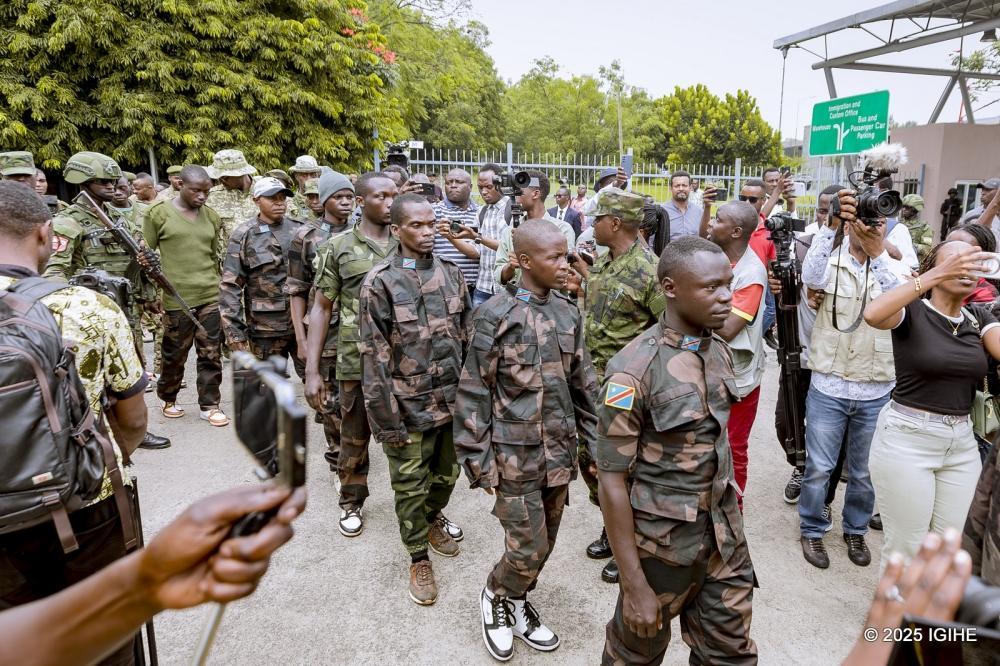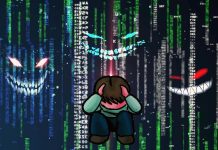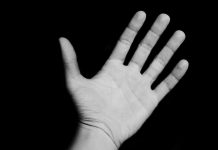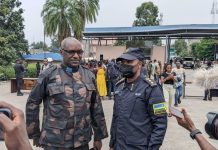Tom Ndahiro
Africa-Press – Rwanda. Hatred is an incurable disease—one that is highly contagious, especially when the vector is the state. When a government embraces vitriolic propaganda, the infection spreads unchecked, turning entire societies into breeding grounds for violence and persecution.
History is full of such tragic episodes, but none illustrates this truth more starkly than the Holocaust and the Genocide Against the Tutsi. The link between antisemitism and anti-Tutsi ideology is not accidental; both stem from racialised thinking that turns entire communities into scapegoats, justifying their extermination.
The consequences are always the same: mass displacement, bloodshed, and a society so corroded by hatred that it devours itself.
Today, the Democratic Republic of the Congo stands as the latest host for this ideological virus. When genocidaires fled into the DR Congo after committing the Genocide Against the Tutsi, they found a fragile state incapable of resisting their poison.
Decades later, the infection has spread so thoroughly that it now threatens not just the Tutsi communities but also the Swahili-speaking Congolese, particularly in the east and southeast. The warning signs are clear, and yet, as always, the world looks away.
The perils of racialized hatred
The long history of antisemitism in Europe shows how hatred can fester for centuries before exploding into mass violence when the right conditions align. For centuries, Jews were blamed for plagues, economic crises, and social instability.
Laws were passed to exclude them, pogroms were launched to terrorize them, and propaganda was spread to vilify them. However, it was not until the Nazis took power in the early 20th century that antisemitism reached its lethal highpoint—the Holocaust.
Once the state actively promoted genocidal ideology, the path to extermination became inevitable.
A similar trajectory can be seen in Rwanda. Belgian colonial rule introduced racialized divisions, falsely categorizing Hutu and Tutsi as separate races and entrenching these identities through identity cards.
The colonial administration, with the full backing of the Catholic Church, planted the seeds of racial hatred, which blossomed when the so-called “father and mother” of Hutu Power—PARMEHUTU—seized power. The result was a series of genocidal massacres, culminating in the 1994 Genocide Against the Tutsi.
When the perpetrators of this genocide fled into the DRC, at the time Zaire, they carried their ideology with them. Unlike in Rwanda, where the Rwandan Patriotic Army (RPA) dismantled the genocidal regime, the DRC lacked the strength to resist their influence.
Instead, these genocidaires, particularly the FDLR (Democratic Forces for the Liberation of Rwanda), found sanctuary, training new generations in the art of hate-driven violence.
Their ideology, left unchecked, has since metastasized into a broader campaign of persecution, one that now ensnares not just Tutsi but also other marginalized groups, including the Hema, the Banyamulenge, and now Swahili-speaking Congolese.
Newest target: The Swahili-speaking Congolese
A recent warning posted on the parody account of former President Joseph Kabila on X captured the latest iteration of this deadly cycle:
“In Kinshasa, Congolese people are being hunted down, attacked, and killed simply because they speak Swahili. Meanwhile, the regime remains silent, incapable of ensuring the security of all. For years, this government has weaponized hatred and division to mask its incompetence. Today, Swahili speakers are the target. Tomorrow, who will be next?”
This question—who will be next? —is the most important one. When a government condones or even encourages persecution, the list of victims never stops growing.
What began as anti-Tutsi propaganda has now turned into a broader campaign against all perceived outsiders. The infection of hatred is spreading, and no one is immune.
Ironically, this is happening under the watch of President Félix Tshisekedi, who since 2023 received military assistance from three SADC (Southern African Development Community) member states, including Tanzania—the most Swahili-speaking country in the world.
One can only imagine how a Tanzanian visiting Kinshasa without knowledge of a single French or Lingala word might be treated. The absurdity of the situation is shocking, yet the silence from international actors is deafening.
How the world enables Congo’s antipathy
The most alarming aspect of this unfolding tragedy is the complete lack of accountability. The DRC has become a country where even the most heinous crimes—including public acts of cannibalism—are tolerated.
Videos of individuals being mutilated and eaten circulate on social media, and yet, there is no outcry from the European Union, the United Nations, or the so-called human rights defenders who claim to care about African lives.
Why this silence? The answer is simple: the scapegoat-in-chief, Rwanda, is always there to absorb the blame. For years, Congolese leaders have effectively deflected attention from their own failures by pointing fingers at Rwanda.
Every single barbarism committed in the DRC is framed as Rwanda’s fault, allowing the actual guilty party to operate with impunity. Western nations, eager to avoid addressing the complexity of the crisis, have accepted this narrative without question.
As a result, genocide denial and incitement to violence continue unchecked in Congolese political discourse.
The parallels with historical genocides are chilling. Just as the Nazis used propaganda to justify their extermination of Jews, Congolese politicians and media outlets have created an environment where violence against Tutsi, Banyamulenge, Hema, and now Swahili speakers is seen as acceptable.
The rhetoric is nearly identical: these groups are accused of being “invaders,” of secretly controlling the government, of being a threat to national unity. Once such narratives take root, mass violence becomes inevitable.
A house divided cannot stand
The DRC’s leaders may believe they can use hatred as a tool of governance, but history shows that no regime built on division can endure. The same ideology that justified the persecution of Tutsi communities in the east is now turning against Swahili speakers in Kinshasa.
Tomorrow, it may target another group. A nation that devours its own cannot survive. The so-called Kabila parody account made a strong declaration:
“The unity of Congo will never be sacrificed on the altar of political manipulation. We will not stand by as this situation deteriorates. Let everyone take responsibility.”
But who is willing to take responsibility? The DRC’s government has presented no predisposition to curb the spread of hatred. The international community, fixated on punishing Rwanda for imaginary sins, has done nothing to address the real crisis unfolding in the DRC. The question remains: when will the world wake up?
Will the world learn before it’s too late?
Hatred is a disease, and the DR Congo is in the final stages of its infection. The genocidal ideology that entered its borders over three decades ago—has now fully consumed its institutions, its discourse, and its political landscape.
The FDLR and other genocidaires were the first carriers, but the virus has since mutated, now threatening Swahili speakers and, inevitably, other groups as well.
The future of the DRC depends on whether it can purge itself of this sickness. That will not happen through empty rhetoric or foreign interventions that ignore the root causes.
It will require a reckoning with the truth: hatred, once weaponized, cannot be contained. It consumes everything in its path.
The world ignored the warning signs before the Holocaust. It ignored them before the Genocide Against the Tutsi. Today, the DRC is giving us yet another warning. Will the world listen this time? Or will it once again wait until it is too late?
The signs are evident—persecution, mass displacement, ethnic cleansing, and state-sponsored incitement—but the world remains uncaring. Why? Because appeasing the Congolese government is easier than confronting its complicity in hatred and mass violence.
Western governments and international institutions refuse to hold Kinshasa accountable, instead choosing to reinforce its dangerous narratives. They impose sanctions on Rwanda while turning a blind eye to the atrocities happening in broad daylight within the DRC.
The very people who should be protecting the vulnerable—human rights organizations, the UN, and foreign diplomats—have become enablers, afraid to speak the truth for fear of political repercussions.
But history will not be kind to those who chose silence. When the inevitable collapse comes—when the hatred that the DRC’s leaders have nurtured finally engulfs them—will these same voices pretend they never saw it coming?
Will they craft new excuses to absolve themselves of responsibility? The truth is, they have already failed. Every victim of this unchecked hatred, every refugee forced to flee, every life destroyed by this genocidal ideology is a testament to the world’s cowardice.
Appeasement is not diplomacy; it is complicity. And the world’s failure to act today will be its shame tomorrow.
The world disregarded the threatening marks before the Holocaust, dismissing Nazi antisemitism as mere rhetoric until millions had perished. It ignored the cries for help before the Genocide Against the Tutsi, choosing bureaucratic delays and diplomatic inaction over intervention.
Today, the DRC is giving us yet another warning, and the international community is once again looking away. How many more mass graves must be filled before the world acknowledges what is happening? How many more families must be torn apart, refugees created, and entire communities erased before we recognize that indifference is complicity?
For years, Western governments, the United Nations, and global human rights organizations have chosen appeasement over accountability when dealing with the DRC. Instead of addressing the real architects of violence, they prefer to issue empty statements and throw blame at Rwanda—an easy scapegoat that allows them to avoid confronting their own failures.
They ignore the Congolese government’s complicity in hate speech, its tolerance of genocidal groups like the FDLR, and its role in the persecution of ethnic minorities. Instead of condemning these crimes, they reward the regime with aid, diplomatic cover, and military support.
But what happens when the flames of hatred engulf the entire nation? When there is no Rwanda left to blame? Will the world feign surprise when another genocide unfolds before its eyes?
Or will it finally learn the lessons of history and stop enabling a government that thrives on division and bloodshed? The choice is clear: act now or bear the shame of yet another preventable atrocity.
Source: The New Times
For More News And Analysis About Rwanda Follow Africa-Press






